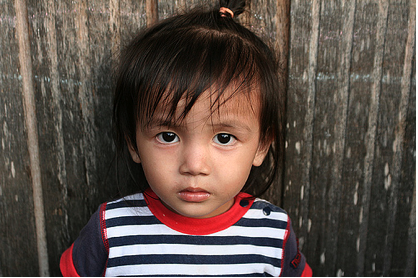To start with, some returnees, perhaps a few dozen, are North Korean spies who completed their missions and went back to Pyongyang to receive medals and promotions. Indeed, as a recent attempt to assassinate Hwang Chang-yop, the highest-ranking defector from the North, demonstrated once again, it is not too difficult to plant a few intelligence agents into the steadily growing stream of refugees.
To complicate things further, most refugees have their families in the North, so it is easy for the North Korean intelligence agencies to recruit even a bona fide refugee by blackmail.
However, one should not make too much from the presence of espionage agents in South Korea. They usually have no access to sensitive information, since refugees are seldom employed in jobs that give them such access (and if they are, they are watched carefully). So, the only area where they can gather meaningful intelligence is the activities of refugee groups from North Korea. Indeed, many of the refugees who have gone missing in recent years once demonstrated suspicious interest in defectors’ groups and organisations.
Another group of returnees are those refugees who were disappointed with life in South Korea. Most of the North Koreans went South with great and often inflated expectations, but soon they discovered the life they had to lead was far less glamorous than the life they saw in smuggled copies of South Korean TV dramas.
North Korean refugees are not faring well in the South. Their average income is about one million won (US$625) a month, roughly half of the national average. They do not have many useful skills, so they have to do only badly paid unskilled work. Last but not least, they are often discriminated against by ‘locals’ – to the extent that many of them try to pass for ethnic Koreans from China (who are also discriminated against, but to a somewhat lesser degree).
The situation is aggravated by a sense of loneliness and alienation. So, some North Koreans begin to perceive their past life in the North as an attractive alternative, and move back.
Technically, it is easy: since the refugees have South Korean passports, they can always depart from China after using a North Korean embassy or consulate there.
It helps that the North Korean regime follows a lenient policy towards returning refugees. They are allowed to settle down in their native towns and villages, and if they make a sufficient donation (reportedly, a few tens of thousand dollars) they can even be granted good positions and privileges. They are often used for propaganda, telling horror stories about life in the capitalist hell down south. Professional propaganda mongers help them to prepare such stories in which the personal experiences of the returnees (bitter, to be sure) are liberally mixed with necessary inventions.
Finally, some refugees cannot stand the thought of the families they left behind. Many of them move back to reunite with their families. In recent years, family defections can be arranged via a professional defection broker, but there are people who due to different reasons prefer a do-it-yourself defection. They go back and sometimes perish somewhere in China or North Korea.
So, even the tremendous material advantage of the South does not always make it more attractive. Although merely a few hundred refugees have chosen to move back (less so, if we take into account spies and those who went to get their families) this is still a discomforting reminder about their position in the prosperous and sophisticated South.
This trend also does not bode well for unification. South Korean society is not doing well when it comes to absorbing 20,000 North Koreans, most of whom are active and even adventurous people. However, sooner or later it will have to accommodate 20 million. How will it handle this task? The experience of the refugees suggests that the first few decades of a unified Korea will be tough.
Andrei Lankov is an associate professor at Kookmin University in Seoul, and adjunct research fellow at the Research School of Pacifica and Asian Studies, Australian National University.
This article was first published here at Asia Times Online.

